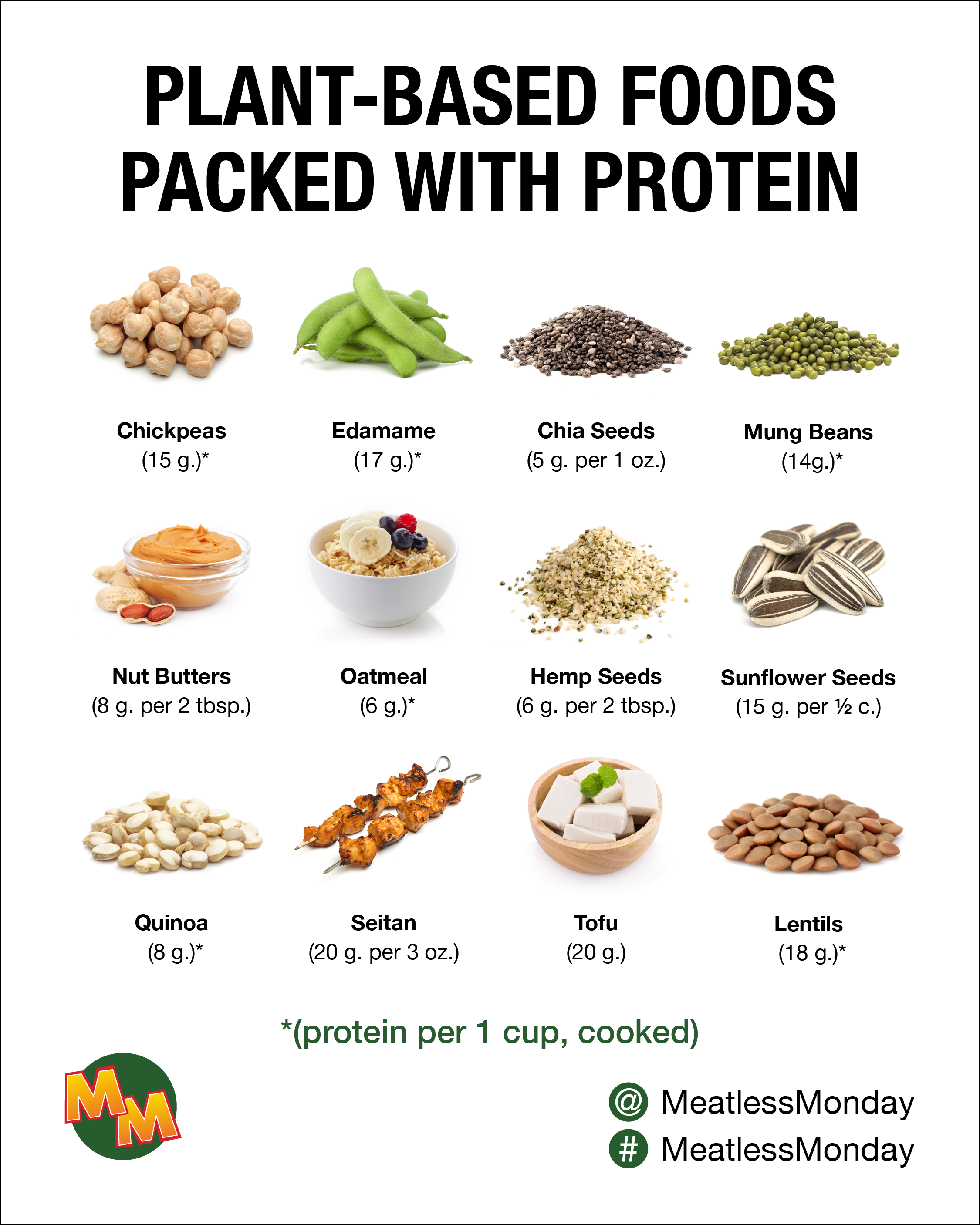3 Plant Based Beef Recipes That Will Impress Even Meat Lovers
3 Plant Based Beef Recipes That Will Impress Even Meat Lovers
Blog Article
All Concerning Healthy Food: Benefits of Enjoying Plant Based Options
The conversation surrounding plant-based diets has acquired substantial interest over the last few years. Numerous people are exploring the possible health and wellness benefits, nutritional advantages, and environmental impacts related to these nutritional options. As people come to be much more knowledgeable about their food's impact on wellness and sustainability, concerns develop concerning the functionalities of embracing such a way of life. What details changes can one anticipate, and exactly how might these choices improve not only personal health but additionally the planet's future?
Understanding Plant-Based Diet Regimens
Several people connect plant-based diet regimens generally with vegetarianism or veganism, these diet plans can encompass a wide variety of eating patterns that prioritize whole, minimally refined plant foods. Such diet regimens frequently include fruits, vegetables, whole grains, seeds, legumes, and nuts, while getting rid of or limiting pet products. This versatility enables individuals to customize their nutritional options according to nutritional demands and personal choices. Some might adopt a largely plant-based diet regimen while still periodically consuming meat or dairy, frequently referred to as a flexitarian technique. The emphasis remains on including even more plant foods, which can lead to a diverse selection of dishes and tastes. Comprehending these numerous interpretations of plant-based consuming is vital for appreciating its accessibility and charm in contemporary food society.
Health Perks of Plant-Based Foods
The wellness advantages of plant-based foods are significant, using a nutrient thickness benefit that sustains overall well-being. Research study suggests that these foods can enhance heart wellness and play an important function in reliable weight monitoring. By integrating more plant-based options, individuals may boost their nutritional selections and advertise lasting health and wellness.
Nutrient Thickness Benefit
Nutrient thickness plays a vital role in the wellness benefits of plant-based foods, making them a compelling choice for those seeking a balanced diet plan. Plant-based foods, such as fruits, vegetables, vegetables, nuts, and whole grains, are often abundant in crucial vitamins, minerals, and anti-oxidants while being reduced in calories. This high nutrient thickness permits people to take in fewer calories while still fulfilling their nutritional needs. In addition, these foods are loaded with nutritional fiber, advertising digestive system health and assisting in weight monitoring. By integrating nutrient-dense plant-based options, consumers can improve their overall health and wellness, support their immune systems, and reduce the risk of chronic conditions. Inevitably, the nutrient thickness of plant-based foods underscores their importance in a health-conscious lifestyle.
Heart Wellness Enhancement

Weight Management Assistance
Along with advertising heart wellness, a plant-based diet regimen can significantly help in weight administration. This nutritional technique emphasizes entire foods such as fruits, veggies, vegetables, nuts, and whole grains, which are usually lower in calories and higher in fiber contrasted to animal-based products. The high fiber web content assists increase satiety, decreasing overall calorie consumption. Plant-based diet plans are often abundant in vital nutrients while reduced in undesirable fats, making it less complicated to preserve a healthy and balanced weight. Study indicates that individuals who adopt a plant-based way of living tend to have lower body mass indexes (BMIs) and experience more effective weight management compared to those who take in meat-heavy diet plans. Welcoming plant-based options is a calculated option for reliable weight management.
Nutritional Value of Plant-Based Components
Plant-based ingredients are abundant in necessary nutrients, offering a varied range of vitamins, minerals, and anti-oxidants that add to total health. A comparison of healthy protein resources discloses that while pet products are commonly considered as exceptional, numerous plant-based choices supply appropriate healthy protein and various other beneficial compounds. Understanding the nutritional value of these components can assist people make educated nutritional selections.
Crucial Nutrients in Plants
Nutrient-rich ingredients found in plants offer a diverse range of vital minerals and vitamins that contribute considerably to general health and wellness. These components are rich in vitamins A, C, and K, which support immune feature, vision, and blood clotting, specifically. Furthermore, plants provide essential minerals such as calcium, potassium, and magnesium, crucial for heart wellness, muscular tissue function, and bone toughness. The visibility of fiber in plant-based foods help digestion and advertises a healthy and balanced intestine microbiome. Anti-oxidants, found perfectly in veggies and fruits, aid battle oxidative tension and reduce swelling. Several plant foods are low in calories yet high in nutrients, making them an excellent choice for those seeking to keep a healthy and balanced weight while ensuring perfect nutrient intake.

Contrasting Healthy Protein Resources
Healthy protein resources vary considerably in their nutritional accounts, with plant-based active ingredients using unique benefits. Unlike pet healthy proteins, which typically consist of hydrogenated fats and cholesterol, plant proteins tend to be lower in these unhealthy components. Legumes, nuts, seeds, and entire grains are abundant in necessary amino acids, fiber, vitamins, and minerals. For example, lentils offer high protein content along with considerable iron and folate, while quinoa is a full healthy protein, using all nine important amino acids. Furthermore, plant-based healthy proteins are usually come with by anti-oxidants and phytochemicals that support total health and wellness. The change to plant-based healthy protein sources not just improves nutritional consumption however also straightens with sustainable nutritional methods, decreasing ecological effect and promoting long-lasting wellness advantages.
Environmental Effect of Plant-Based Eating
As recognition of climate change grows, several individuals are discovering sustainable nutritional choices that can substantially lessen their environmental footprint. Plant-based eating has actually become a significant factor to decreasing greenhouse gas exhausts, which are mainly connected with animals production. The farming of fruits, grains, vegetables, and vegetables generally needs less sources, such as water and land, compared to animal farming. Additionally, plant-based diet regimens can result in decreased logging, as much less land is needed for grazing livestock or growing pet feed. By shifting towards plant-based choices, customers can sustain biodiversity and advertise healthier environments. On the whole, embracing plant-based eating not only benefits personal health and wellness yet additionally stands for an essential step toward ecological sustainability and preservation efforts.
Overcoming Common Misconceptions
While numerous individuals Your Domain Name acknowledge the advantages of a plant-based diet plan, numerous misconceptions typically prevent them from completely embracing this way of living. An usual idea is that plant-based diets lack adequate healthy protein; nevertheless, many plant resources, such as vegetables, nuts, and tofu, supply adequate healthy protein. Furthermore, some presume that this diet is expensive, when actually, staples like beans, rice, and seasonal veggies can be rather affordable. One more misunderstanding is that plant-based eating is overly restrictive, whereas it actually offers a diverse selection of foods and tastes. Lastly, lots of fret that a plant-based diet may bring about shortages, yet with proper planning, people can acquire all required nutrients, including minerals and vitamins, while appreciating a wide array of delicious dishes.
Tips for Transitioning to a Plant-Based Way of life
Making the change to a plant-based lifestyle can be an improving experience, though it typically requires some guidance to browse the preliminary adjustments. First, people are motivated to start progressively, incorporating even more fruits, veggies, vegetables, and whole grains right into their dishes while minimizing meat go to these guys and milk intake. Meal planning is necessary; preparing a regular food selection can help alleviate the adjustment and prevent final unhealthy options. Discovering new dishes and cooking approaches can additionally enhance the experience and maintain excitement about plant-based eating. Additionally, signing up with assistance groups or neighborhoods can supply inspiration and share beneficial suggestions. Ultimately, staying educated concerning nutrition guarantees balanced meals, protecting against shortages while fostering a healthy, rewarding plant-based way of living.
Delicious Plant-Based Dish Concepts
Discovering scrumptious plant-based dish ideas can influence additional resources individuals to accept a more healthy diet regimen. One popular option is a passionate quinoa salad, featuring cherry tomatoes, cucumber, and a spicy lemon-tahini clothing. An additional favorite is a full-flavored lentil stew, packed with carrots, celery, and great smelling natural herbs, best for a calming dinner. For morning meal, overnight oats made with almond milk, chia seeds, and covered with fresh berries offer a healthy beginning to the day. Furthermore, a dynamic vegetable stir-fry with tofu and a range of colorful veggies can be a quick yet satisfying meal. Creamy avocado salute on whole-grain bread, sprayed with seeds and spices, supplies a basic yet flavorful snack. These meals showcase the variety and splendor of plant-based consuming.

Frequently Asked Questions
Can a Plant-Based Diet Give Sufficient Healthy Protein?
The concern of whether a plant-based diet can give adequate protein is common. Countless resources, including beans, nuts, seeds, and whole grains, can meet healthy protein requires efficiently, sustaining a nourishing and balanced diet for people.
Are Plant-Based Diet Plans Ideal for Kid?
The suitability of plant-based diets for kids depends on cautious planning. Adequate nutrients need to be guaranteed, consisting of healthy proteins, minerals, and vitamins. With appropriate guidance, such diets can sustain healthy and balanced growth and growth in children.
Just how Do I Eat in restaurants on a Plant-Based Diet regimen?
Dining out on a plant-based diet includes seeking dining establishments with varied menus, requesting modifications, and checking out vegan-friendly options. Planning in advance and communicating nutritional preferences can improve the eating experience while preserving nutritional choices.
What Prevail Allergens in Plant-Based Foods?
Typical irritants in plant-based foods consist of soy, gluten, nuts, and seeds - Plant Based Beef. People following a plant-based diet plan ought to know these irritants and read tags carefully to prevent negative responses and guarantee secure intake
Can Plant-Based Diets Help With Fat Burning?
Research suggests that embracing a plant-based diet regimen might facilitate weight-loss because of its generally reduced calorie thickness and greater fiber web content. This combination can enhance satiation, aiding people handle their calorie consumption effectively. Numerous people connect plant-based diet plans generally with vegetarianism or veganism, these diet regimens can encompass a broad variety of eating patterns that prioritize entire, minimally refined plant foods. Nutrient thickness plays an essential duty in the health benefits of plant-based foods, making them a compelling choice for those seeking a well balanced diet plan. Plant-based diet plans have been shown to significantly enhance heart health and wellness, as they usually have components that sustain cardiovascular feature. In enhancement to promoting heart health and wellness, a plant-based diet can considerably aid in weight management. A common belief is that plant-based diet regimens do not have adequate protein; however, numerous plant resources, such as vegetables, nuts, and tofu, offer sufficient protein.
Report this page